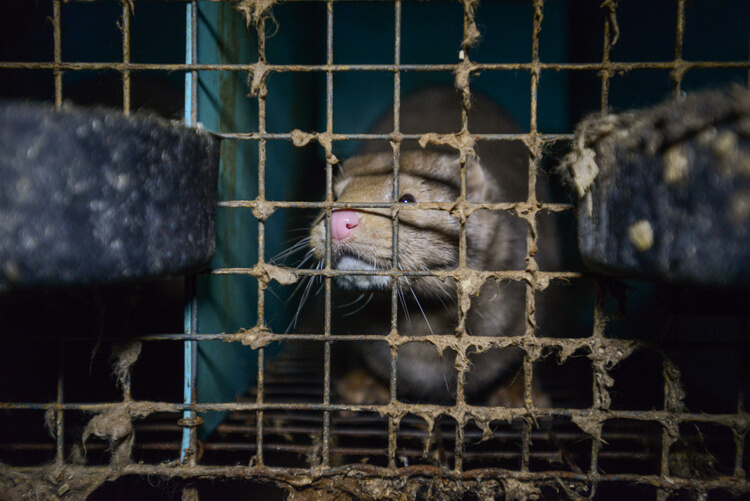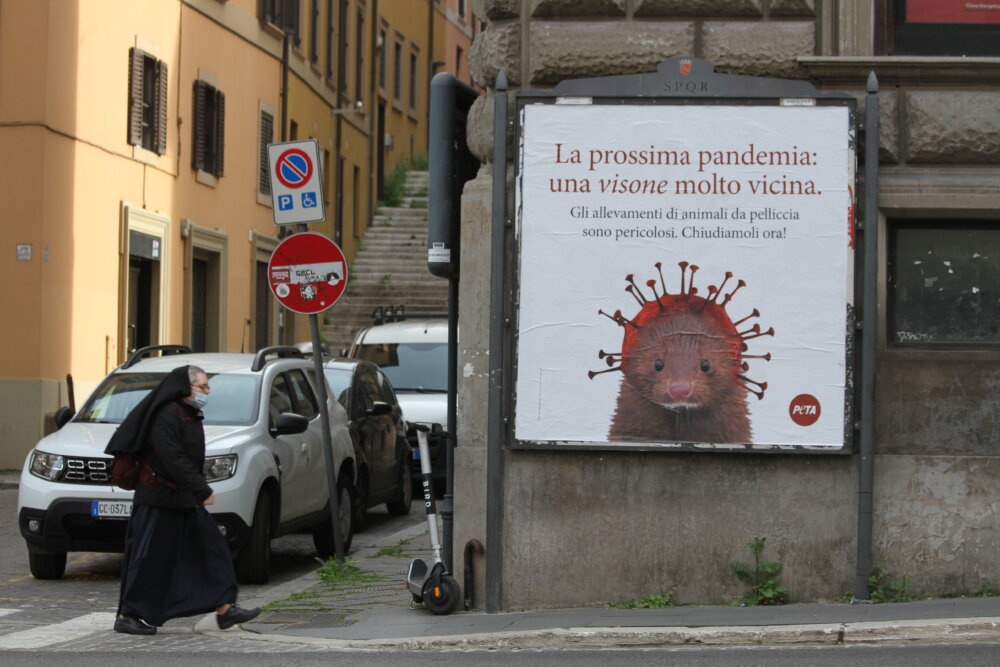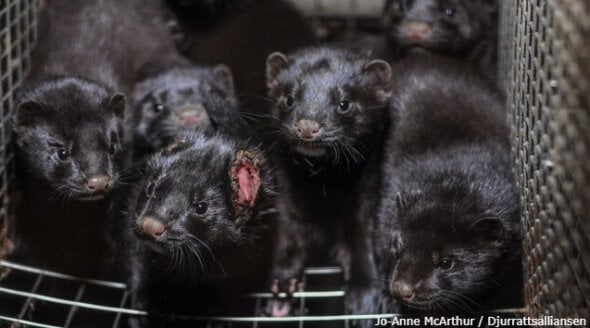Italy Suspends Mink Breeding – But Why Is Fur Farming Still Not Banned?
The Italian government has ordered the suspension of mink breeding on fur farms until the end of 2021 following reports of COVID-19 outbreaks at such facilities. The government also ordered all minks to be killed on one farm after an animal there tested positive for the novel coronavirus.
Suspending mink breeding is a step in the right direction, but it’s not enough. Gassing minks and suspending mink fur farm operations delay the inevitable and prolong cruelty. These deadly places must be shut down permanently.
Fur Farms Are Breeding Grounds for Disease
Around 7,000 minks a year are still imprisoned on Italy’s six remaining fur farms. Filthy fur farms packed with sick, stressed, and injured minks are breeding grounds for disease. The viruses that cause SARS and COVID-19 first infected humans who came into close contact with captive wildlife at live-animal markets – which represent a public health risk similar to that posed by fur farms.
As is the case at live-animal meat markets, on fur farms, minks and other animals are confined to cramped wire cages adjacent to one another before being killed. Diseases can easily spread through inhalation, urine, excrement, pus, and blood. Animals with infections, sores, and festering, open wounds caused by the wire flooring they stand on are a common sight.
Fur farmers and handlers are among those who most commonly suffer from the zoonotic bacterial disease tularaemia.
Fur Farming Is Cruel
Humans have no right to imprison minks in barren cages for their entire lives. Unable to engage in natural behaviour, they often go mad from the confinement. Some even self-mutilate, chewing on their own legs or tails as a result of the constant psychological and physical torment.
At the end of their short, miserable lives, they’re poisoned, gassed, or drowned. They may even be skinned alive.

Italians Are Against Fur
Italians know that fur belongs in the history books, not in our wardrobes. Over the past 30 years, the number of fur farms in Italy decreased from 125 to six. Over 90% of the country’s population is against fur farming, and iconic Italian designer brands such as Armani, Gucci, Elisabetta Franchi, Prada, and Versace are all fur-free.
Last week, famed Italian model and actor Elisabetta Canalis expressed her support for PETA’s billboard campaign calling on Italy to help prevent the next pandemic by shutting down its fur farms completely.
What You Can Do for Minks
The fur industry was already dying before the novel coronavirus put what should be the final nail in its coffin. It’s time to shut the cruel industry down. Urge the Italian government to ban fur farming immediately:






